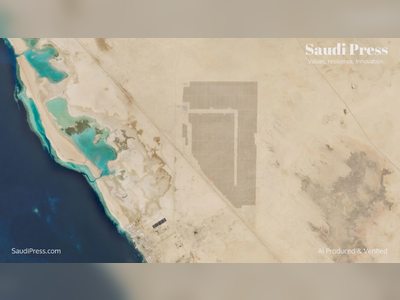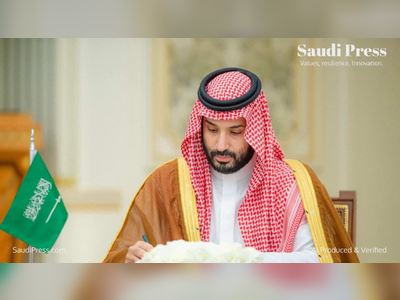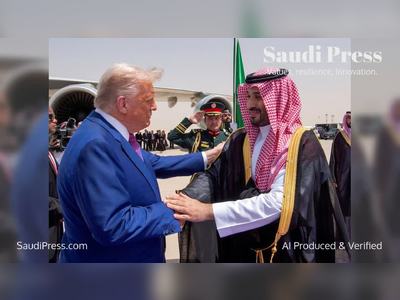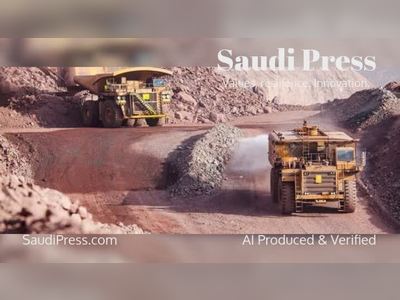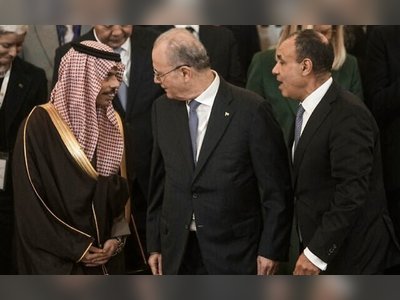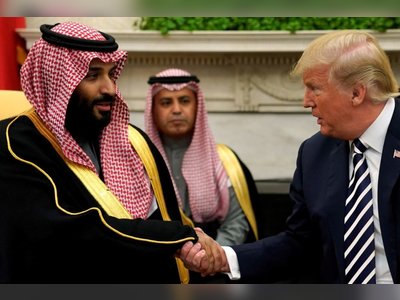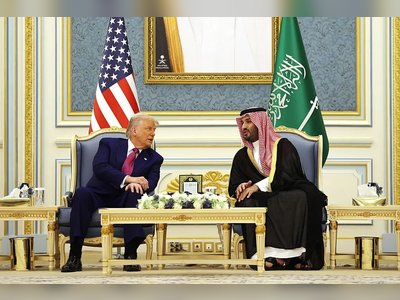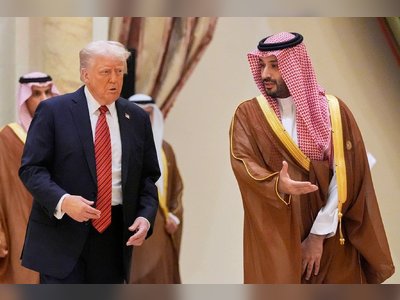Saudi Arabia’s Crown Prince Begins Washington Visit to Cement Long-Term U.S. Alliance
Mohammed bin Salman’s trip underscores a wide-ranging strategic reset in U.S.–Saudi relations, emphasising defence, AI and nuclear cooperation
Crown Prince Mohammed bin Salman has arrived in Washington for meetings with U.S. President Donald Trump and senior American officials, signalling a deliberate effort to cement a long-term strategic partnership between Saudi Arabia and the United States.
The visit marks his first trip to the U.S. since 2018, after a period of diplomatic strain following the killing of journalist Jamal Khashoggi.
Prominent Middle East scholar Professor Bernard Haykel described the meeting as “highly significant,” saying that it “marks the end of a long period of estrangement.” He said that the Crown Prince, “a nationalist,” will act in what he perceives to be his country’s interest first, and that this visit is intended to lock in a deeper, sustained alliance with Washington.
According to Haykel, the summit is the culmination of years of quiet negotiation that began during the previous U.S. administration.
He predicted the signing of half-a-dozen or more agreements covering mutual defence, arms sales, mining and rare earths, semiconductors and advanced technology, investment, entertainment and healthcare.
The visit is designated as a working visit rather than a formal state visit, but observers say it should be treated as one given the scope and symbolism.
One of the most closely watched elements is the defence dimension.
Saudi Arabia is seeking a major security package, including possibly a U.S. guarantee of Saudi defence and access to advanced fighter jets.
The U.S. side is reportedly considering approval of F-35 aircraft for the kingdom, although key questions remain regarding sovereignty controls embedded in the system.
The delegation is also raising Saudi hopes for a civilian nuclear energy cooperation deal with the United States, including discussions on limits around uranium enrichment and spent-fuel re-processing.
Another theme is technology and critical minerals: Riyadh is reportedly pushing for access to artificial-intelligence chips and data-centre deals that fit its broader industrial-diversification strategy under Vision 2030. At the same time, Saudi Arabia appears willing to offer expanded investment in the U.S., including within defence and technology sectors.
Haykel warned that the normalisation of diplomatic ties between Saudi Arabia and Israel—an issue linked to U.S. defence support for the kingdom—will proceed gradually and in measured stages.
He noted that the regional and domestic environment remains sensitive, particularly in light of the war in Gaza and broad public opinion across the Arab world.
On the nuclear front, Saudi officials are said to want a clear U.S. pathway to civilian atomic energy, but the question of enrichment remains central.
As Haykel put it: “If they give up enrichment, they will ask for stronger American protection in return.”
Taken together, the visit signals a major recalibration in U.S.–Saudi relations: from the traditional oil-for-security framework to an expanded partnership that spans defence, technology, investment and geopolitics.
For Washington, the alliance offers a strategic counter-weight to regional rivals and an entry into critical-minerals supply chains; for Riyadh, it is a chance to secure advanced capabilities and long-term investment partnerships.
As talks proceed, the final agreements will test whether both sides can turn vision into deliverable commitments – and whether the Crown Prince’s pragmatism will pay off in securing Saudi Arabia’s new role at the centre of regional and technological geopolitics.
The visit marks his first trip to the U.S. since 2018, after a period of diplomatic strain following the killing of journalist Jamal Khashoggi.
Prominent Middle East scholar Professor Bernard Haykel described the meeting as “highly significant,” saying that it “marks the end of a long period of estrangement.” He said that the Crown Prince, “a nationalist,” will act in what he perceives to be his country’s interest first, and that this visit is intended to lock in a deeper, sustained alliance with Washington.
According to Haykel, the summit is the culmination of years of quiet negotiation that began during the previous U.S. administration.
He predicted the signing of half-a-dozen or more agreements covering mutual defence, arms sales, mining and rare earths, semiconductors and advanced technology, investment, entertainment and healthcare.
The visit is designated as a working visit rather than a formal state visit, but observers say it should be treated as one given the scope and symbolism.
One of the most closely watched elements is the defence dimension.
Saudi Arabia is seeking a major security package, including possibly a U.S. guarantee of Saudi defence and access to advanced fighter jets.
The U.S. side is reportedly considering approval of F-35 aircraft for the kingdom, although key questions remain regarding sovereignty controls embedded in the system.
The delegation is also raising Saudi hopes for a civilian nuclear energy cooperation deal with the United States, including discussions on limits around uranium enrichment and spent-fuel re-processing.
Another theme is technology and critical minerals: Riyadh is reportedly pushing for access to artificial-intelligence chips and data-centre deals that fit its broader industrial-diversification strategy under Vision 2030. At the same time, Saudi Arabia appears willing to offer expanded investment in the U.S., including within defence and technology sectors.
Haykel warned that the normalisation of diplomatic ties between Saudi Arabia and Israel—an issue linked to U.S. defence support for the kingdom—will proceed gradually and in measured stages.
He noted that the regional and domestic environment remains sensitive, particularly in light of the war in Gaza and broad public opinion across the Arab world.
On the nuclear front, Saudi officials are said to want a clear U.S. pathway to civilian atomic energy, but the question of enrichment remains central.
As Haykel put it: “If they give up enrichment, they will ask for stronger American protection in return.”
Taken together, the visit signals a major recalibration in U.S.–Saudi relations: from the traditional oil-for-security framework to an expanded partnership that spans defence, technology, investment and geopolitics.
For Washington, the alliance offers a strategic counter-weight to regional rivals and an entry into critical-minerals supply chains; for Riyadh, it is a chance to secure advanced capabilities and long-term investment partnerships.
As talks proceed, the final agreements will test whether both sides can turn vision into deliverable commitments – and whether the Crown Prince’s pragmatism will pay off in securing Saudi Arabia’s new role at the centre of regional and technological geopolitics.
